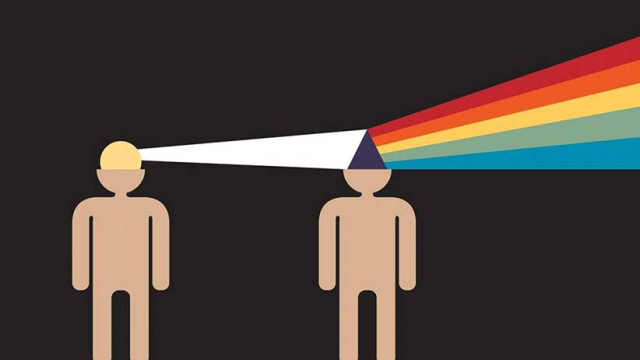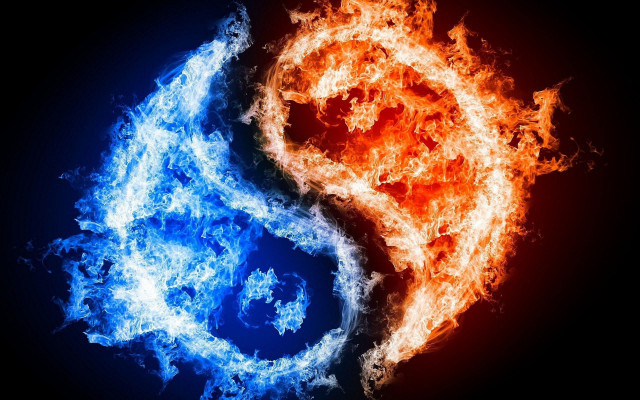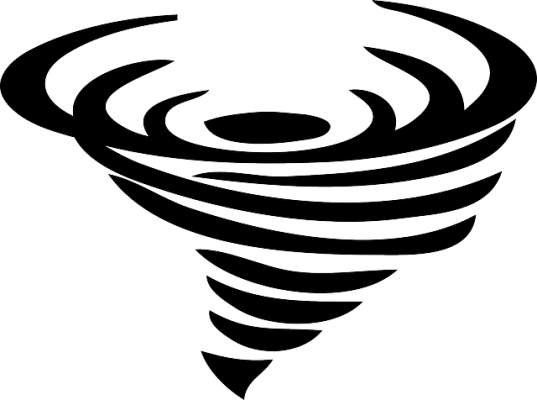I’ve been in this business a long time. Over 18 years now. But recently someone I knew and followed me on social media reached out to me and was not even sure if I even still engaged in one-on-one work.
Of course, I do. Of course, I am.
But that indicated to me I needed to reach out to you and just review the past and mention an upcoming training as well.
-
At some point, I was called to purpose in a way that had me know in my bones that there was nothing for me to do but be in service of others evolving.
Engaging in it professionally began in 2004, and while it took me a couple of years of making all the mistakes one can make in this particular business I finally figured it out or “cracked the code” if you will in 2006 which was my first 6-figure year in this business.
After 18 years and after guiding well over 500 clients through 6-month programs, I thought it might be time to re-introduce myself as a lot of people following me here have only seen a slice of my work as my focus shifted to relationships and relating and I have received a lot of feedback lately around how people perceive my work. Many - an odd number - think I only work with men. And recently someone called me a “relationship expert”. I openly laughed at that and responded: I am not sure there even is such a thing as a “relationship expert”.
Also, hilariously, a client I recently signed from here on Facebook reached out and asked if I was even still in this business. That cracked me up.
So to correct and clarify the record I’ll list off the phases my business and offerings have gone through over the years, and then ground the whole thing in how I was called to purpose at a certain point of my path - while briefly illuminating some milestones along the way.
✨2004-2006 figuring out how in the heck to make it an actual business. Even though I had been a sales trainer for Tony Robbins, I quickly figured out that the relationship between client and Guide is too intimate to simply bolt on a sales system from some other business - which is where most coaches and those teaching coaches how to build their business get it wrong.
✨2006-2008 and to the Present: offering comprehensive Personal Evolution - with three phases to that structured - yet formless - 6-month program. What do I mean by that? The Phases 1. Healing and Clearing, 2. Education, self-esteem, sense of self, navigating your interiors, etc., and 3. Integration and ad hoc application were always the same regardless of the context, just sometimes called other things. But the form - what was handled in each phase - is entirely dependent on the outcomes drawn out of the client. It is purely in service of those.
🔥At one point I signed 49 clients in a row to 6-month programs [no one said no in that stretch] so I figured it was time I systematized my sales system - or reverse-engineered it is more accurate.🔥
✨2008-2014-ish I added teaching coaches and holistic practitioners how to build their businesses. The best part of my sales system is ~98% of the people I work with report it never feels like sales because it is entirely outcome-based. More on that another time.
🔮But if you think that personal evolution is not part of building your business you are … mistaken. Clearing out negative imprints and beliefs about money and spirituality, working on your worthiness of receiving, clearing fear and anxiety, and perhaps shame are all critical for your business success. So we always start there because then when we implement business strategies in Phase 2, it moves with so much more velocity and ease in your nervous system.
✨2014-2018 I did a few corporate gigs for small personal development companies - both designing coaching packages for them and teaching their team how to sell them ethically using my system.
✨2019 my attention turned to relationships, so-called “polarity”, and … well, what a clean, healthy, and evolved relationship would look and feel like.
It clearly began as more of a critique of the complete stuff I saw out there in the space. So many unclean and unhealthy principles that were clearly coming from a place of regression and for most relationship coaches - clearly from their wounding rather than from a place of vision and emergence. And as a die-hard romantic, I felt there was simply a better way.
Some of you may have seen my 4-part series on my website critiquing polarity coaches (especially the male coaches).
✨Along the way I designed and facilitated 5 NLP Evolutionary NLP Practitioner certifications - all 7 months long - in 2006, 2017, 2019, 2020, and 2022. Why “evolutionary”? Because to me, all work we do is better served by understanding Integral Theory - Quadrants, Levels, Lines, States, and Types. So both stages of ego development and emotional and moral development a la Graves, Gebser, Kohlberg and Gilligan, Wilber, et al - or simply verticality (or stages of depth if you prefer that metaphor) is critical to know what your client needs when, in what order, for what outcome.
But in terms of rapid transformation healing your past reducing triggers and clearing trauma - including generational trauma - there is nothing more efficient, elegant, effective, and holistic than processes like Time Line Clearing, Parental, Core Transformation, sub-modality shifts, and the like.
And therein lies another misconception about my work. While yes, I have been a certified NLP Master Practitioner and trainer since 1995 [29 years now], I do not identify as such.
I am an Evolutionary Guide™ (which transcends but includes “coach”). I accelerate evolution. Your evolution. But it also means I work within an Integral framework.
My work is best suited for people who have already done a lot of personal development - perhaps in weekend workshops, etc, and even therapy, but want more intentionality around their outcomes with more effective approaches.
ANYWHO ...
I am also offering another Evolutionary NLP Practitioner Certification training. This will be the 6th.
It is designed for coaches, healers, practitioners, professional communicators, and humans who just want to massively accelerate their personal development within a container - and with logistics designed - for integration.
It kicks off in just a few months.
You can see full details for the NLP training (including curriculum, logistics, and an extensive FAQ section here: https://evolutionarycompanies.com/nlp-training
If you want to have a complimentary 30-minute initial conversation with me to see whether it makes sense for us to work together in service of your outcomes, you can just go ahead and schedule that here: https://calendly.com/evolve-co/30min
Wishing you only good things. Always.
In Your Service,
McClain
Evolutionary Blog
One of the things I have noticed about the current conversation around masculine/feminine dynamics and masculinity, in general, is just how threatened some men teaching polarity seem to be by certain things.
Notice I did not call them leaders - just people teaching these dynamics. There is a flavor to the way they teach it that reminds me of a born-again Christian who was recently baptized, or someone in a 12-Step program in their first few months of sobriety. Or a recent convert from one religion to another, or like somebody engaged in partisan politics who feels that the other side is evil even when they agree with their proposal. Or somebody who has recently found a transformational path - be it meditation or a community or a weekend workshop - and find it to quench a thirst that they've had for decades - and can’t stop talking about it and are hounding you to go.
This is understandable. As humans when we find a solution to a problem that we suffered from that may not have even been articulated previously we engage in it with a certain zeal.
The problem is there is an even greater need for clear, powerful, centered, principled men and the masculine these days. Feminine women are craving it - and the world is crying out for principled leadership, a commitment to truth, and is longing for depth.
And that last part is the real challenge here.
Make no mistake: men who are two-dimensional in their approach to masculine-feminine dynamics [meaning they lack depth, understanding of context, and when to powerfully lead and when to be more in flow, and the ability to calibrate to what is needed when and with whom] are the loudest voices in this domain. But you can engage in polarity without being polarizing.
You can be clear without being a dogmatic fundamentalist. We are all evolving all the time. What is the nature of personal evolution? The increasing capacity to take on an ever-increasing number of perspectives. To understand. To be able to argue from the other side and only then to show why you disagree with it. To honor it and then offer a better approach. It’s clear that these dogmatic, fundamentalists are in reaction. They are in fear. You can tell by their reactivity and their deflection. You can tell by their lack of tolerance for dissent.
You can tell by the things they are triggered by: Prince, conversations around gender identification, and their assertion that the trappings - the costume - of masculinity [beard and boots] are the answer. If they were really certain of their own internal masculine core - what I am calling a Column of Iron and Light - they would not be threatened by any of these things.
They would know it does not matter what someone wears. Don’t mistake reactivity and contraction for clarity and warriorship.
They are not offering a new, emergent path. Rather they are offering a 50s style approach because it makes them feel safer in chaotic times. That is also intrinsic to the nature of evolution: when we are under pressure, we contract and regress. We go back to stable structures that give us comfort. But that is not what we need right now. What we need is a new path that provides a better option that addresses the current chaos, and provides clarity in the face of it without denying or deflecting the realities of our current, complex times.
What we need are more Evolutionary Gentlemen.
Continue with Part 1 of The Problem With Most Male Polarity Coaches »here«
Read the introduction to The Problem With Most Polarity Coaches »HERE«.
Part 1:
-
There are two major problems I see in the “masculine polarity coach” space.
The first is that it is not evolution - not a new stage, wave, or level that is solving the problems of the stage before. Rather it is a contraction and a regression to previous forms. Instead of moving from rigid to flexible to fluid, it moved from rigid to flexible and then back to fixed/rigid. This is not a solution that will work in our post-conventional world. It may be attractive for a while. It provides respite from what seems like chaos and the mental and emotional fatigue in those that do not have the capacity to engage with that. AND it is an answer (and direct response) to the milquetoast nature of what has become the conventional norm in our society with empowered women and emasculated and uncertain men.
Many men have become afraid, timid, and uncertain. And many women are aching for a man they can surrender to - but surrender not because of his degree of force or dominance - that will do for a while for some, but quickly turns unhealthy. While they may want to be “claimed” at first, they will often find it stifling and will long to be free from the possessiveness that can turn into.
And the second is that what some think is clarity is not - it is simply rigidity born out of the fear of the unknown and discomfort with fluidity. It is a regression - not an evolution. A contraction - not an expansion to embrace more of what is. That and/or it is a trauma response and so the unhealthy masculine experiences a contraction, regression, and that comes out a dominance with an unhealthy residue.
This is why so many people who are highly sensitive to what feels “off” know that many of these polarity coaches feel out of tune.
Let me be clear: I am not saying that one should never lead, be in control, and even be dominant, but to do it from a healthy place of creation rather than an unhealthy regression will have a palpable difference in texture; one will make her drip with desire and naturally surrender. One will frighten her into submission - with varying degrees of subtlety. Both may turn her on at first, but the clean, healthy approach will be more sustainable as it is deeply intimate. While the other will be shorter-term and has a subject-object quality to it. Cool for a single BDSM scene perhaps, but not for sustained play.
The answer to the problem of the lack of polarity in Stage 2 relating is not the regression that most of the coaches promote. It is not a return to 1950s style patriarchal households, but rather an expansion to include - and embrace - previous forms but to do so in context, and have greater fluidity.
Healthy Stage 3 relating involves - at the very least - a woman who knows she does not need a man for her life to work - she gained her autonomy at Stage 2 - and with that freedom, her authentic desire to surrender in the presence of healthy Stage 3 masculine is motiveless except for her own feminine pleasure and arising desires - physically, emotionally, mentally, spiritually. And reciprocally, a man who is coming from a Stage 3 level of ego development does not desire a woman who is simply submissive. That may work situationally, but for a sustained, healthy partnership, he desires an empowered and autonomous woman who chooses to surrender to him for her own pleasure. In context. When she chooses.
In this scenario, it is more of a dance. It is fluid. It is contextual. And its lack of rigidity is the very element that gives it its sustain as well as its heat.
What do I mean by these stages? Movement through stages of ego, moral, and emotional development. Stages of increasing wholeness, stages of increasing degrees of freedom and acceptance, increasing choice. From fixed to flexible to fluid. From ego-centric to ethno/natio-centric to world-centric. It can be discerned what one needs to resolve or release at one stage and what they need to embrace or include in their map to move to the next stage; to evolve. It is critical to all humans because where we are on that scale/matrix/stage conception determines - by and large - how we relate to ourselves and how we relate to and interpret events around us.
When it comes to polarity and masculine/feminine (which we all have degrees of in each of us and these are not gender-bound), at each stage of development, we have even more options for expressions of those modes of being [see attached image]. This is both the beauty and wonder of it and - for some - the scary nightmare part of it.
This can make a lot of - heck most - people uncomfortable, and in the face of it, most regress and contract. Sadly, they will have more and more pressure and their position will become less and less tenable in an ever-changing and evolving world.
The choice is simple: embrace the complexities and expand our embrace of difference and expand the scope of what we can navigate, or regress to a more 2-dimensional view of man-woman relations. But here’s the thing: no matter how much they may resist it, there is a directionality to personal and cultural evolution. So go ahead and dig the heels of your boots in and grow your beard out, but the world is moving forward whether you embrace it or not.
-
Post Script: the unfortunate thing is that it seems these polarity coaches have all read "Selling to the Lizard Brain" or something as their marketing is effective at triggering the most base of fears and desires and as such will always attract more people at first. Even those who disagree with them are drawn to it. But their model is bankrupt - spiritually and emotionally - and ineffective at creating sustainable, intimate relationships - regardless of how effective their business model may be at scale.
-
Continue The Problem With Most Polarity Coaches, with Part 2 »HERE«.
We, as a people, seem to love classifications. As humans, it is what we do best: identification. It separates us from primates. We can identify and classify things into systems, genres, classes, subclasses, and so on.
This is a great skill; a skill that could even save your life someday as you classify “dangerous, not dangerous – deadly, not deadly”. The ability to identify (what is it?) and then extrapolate accurately (what does it mean?) is indeed a critical skill. A skill no less critical even as we get more and more civilized. In fact, it could be argued that the dangers get ever more complex and demanding of this skill the more complex our society becomes, and the more knowledgeable we become.
When this gets interesting is when we apply and over apply this skill to other human beings where physical safety is clearly not a concern. We have all sorts of categorizations and systems of classification. We have ethnicity, sexual preferences, and orientation, political party affiliation, zodiac sign, political orientation or leaning, class separation, high school cliques, enneagram number, etc., etc.
These are all tools we use to classify, to categorize, and to put people into some box or drawer. At first, it may seem like we use these tools to gain a better understanding of who they are, really.
Is that how we typically use them, in actuality? The way I have seen myself and others use them is as I described above. We put them into a box. We now think we “know” them, or at least that portion of them. They are a democrat or a republican and all of a sudden, we now “know them” politically. They are a 3 on the enneagram, and all of a sudden we “know” what to expect of their behaviors; their light and beautiful side and their darker patterns.
We put them into a box and we can then relax, or tense, or whatever, but some part of us relaxes. We know them; we can now relax and move on to putting another part of them into a box. Are they heterosexual or homosexual? Ah, they are bi-sexual. We can now relax (or tense [laugh]) because we now “know” who they are sexually.
But do we? (It is fascinating to see someone feed their ego when they think they have “nailed” someone’s zodiac sign or enneagram number by guessing at it; excited about putting someone in a box.)
Once we put someone into a box, we then stop relating to who they are as a unique and beautiful being -- we begin to relate to the box. We begin to fit all of their behaviors into that box or view their behaviors through the filter of said box.
Sure, we are more comfortable ourselves once we have classified them, but the real relating begins to die a slow (or rapid) death. We now stop relating to who they are in this moment, right now, and begin to relate to what we read about them in a book, or what we see about their “type” on TV, Etc. Then what began as a tool for greater understanding and deeper relating has ended up as a wall or a barrier to greater and truer understanding – a barrier to more intimate relating; a wall around the heart. A wall and a filter we are often not even aware of.
And what are human Beings anyway? They are manifestations of the divine.
Can we really classify that?
Human Beings at their best and most inspirational are creative, spontaneous, dances of improvisation, which is completely unpredictable, and if we get too caught up in who we think they are, we may miss a glimpse of God as it dances right before us, right within our grasp. While these tools for classification are useful to a certain point, they are only useful to a certain point, where if we want true relating, true intimacy, they must then be cast aside. If we truly desire peace on this planet, it will take something like this, from all sides, from all perspectives, from all lands.
From the heart, guided by the head, enveloped in Spirit.
"Falling in love is the greatest story of addiction in existence." -Philippe Lewis I toyed with this idea for years. Along with the idea that all romantic love is delusion. Delusion and addiction. Why else does "absence make the heart grow fonder" if not because you aren't dealing with the reality of who they are - but rather who you imagine them t...
Copyright
© © 2017 Jason D McClain, World-Wide Rights Reserved.





